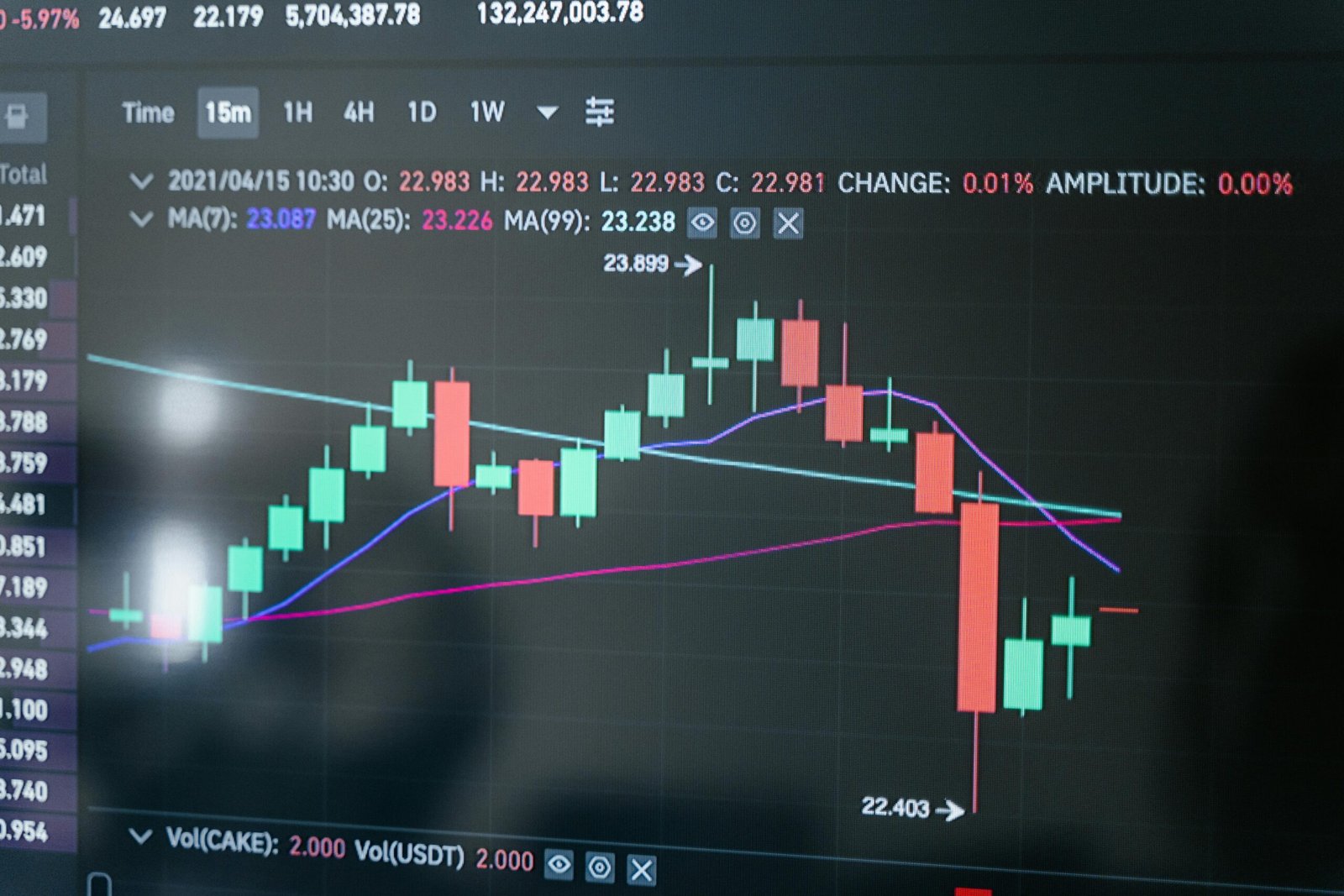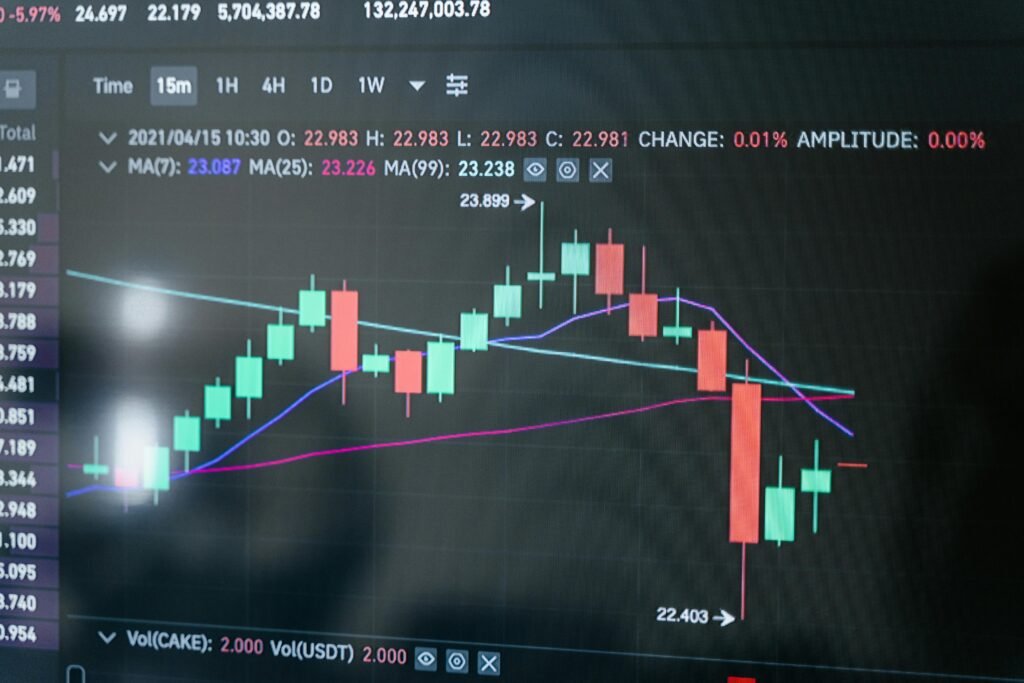💥 AI Bubble Risk vs Internet Bubble: Are We Heading for Another Tech Crash?

The rise of artificial intelligence (AI) has sparked excitement—and concern. Some experts warn that the AI industry might be in a “bubble,” much like the Internet bubble of the late 1990s.
But how accurate is that comparison? And what can investors, businesses, and tech enthusiasts learn from history?
In this article, we’ll break down the AI bubble risk vs Internet bubble, explore the similarities, differences, and possible outcomes, and show what it means for the future of technology and innovation.

🧠 What Was the Internet Bubble?
The Internet bubble (dot-com bubble) refers to the period from 1995 to 2000 when massive investment poured into Internet-based startups.
Investors believed the Internet would change everything—and they were right—but the hype went too far.
Here’s what happened:
- Countless companies with “.com” in their name were valued at billions—with no profits.
- Startups spent huge budgets on marketing instead of building solid business models.
- When reality hit, the bubble burst in 2000, wiping out $5 trillion in market value.
Still, the Internet survived—and became the backbone of the modern world. Giants like Amazon, Google, and eBay emerged from the ashes.
🤖 What Is the AI Bubble Risk?
Fast-forward to 2025: AI is the hottest topic on Earth.
Companies like OpenAI, Anthropic, and NVIDIA dominate headlines. Venture capital is pouring billions into AI startups every month.
The AI bubble risk refers to the idea that AI valuations may be inflated, driven more by hype than by sustainable profits.
Many businesses are adding “AI” to their branding—just as startups once added “.com”—to attract investors.
⚠️ Signs We Might Be in an AI Bubble:
- Overvalued startups with no clear revenue model.
- Mass layoffs in tech companies while AI hiring surges unrealistically.
- Speculative investments in AI stocks.
- Excessive media hype around generative AI tools.
However, just like the Internet era, AI is a real technological revolution—so not everything is a bubble. The question is how deep the correction will be, not whether AI has value.
🔍 AI Bubble Risk vs Internet Bubble: Key Similarities
| Aspect | Internet Bubble (1995–2000) | AI Boom (2020–2025) |
|---|---|---|
| Investor Hype | Belief that the Internet will transform everything | Belief that AI will automate and transform every industry |
| Speculative Funding | Startups with “.com” raised billions | Startups with “AI” raise billions |
| Rapid Valuations | Huge IPOs, no profits | Massive valuations, limited revenue |
| Media Attention | Nonstop excitement about the “future online” | Daily AI headlines dominating tech news |
| Outcome (expected) | Bubble burst, followed by strong survivors | Likely correction, but long-term winners remain |
💡 Major Differences Between the Two Bubbles
While the AI boom and the Internet bubble share similarities, key differences suggest AI might have a softer landing:
- AI is already profitable — Unlike many dot-com startups, AI is already being used in real businesses (e.g., marketing, customer support, healthcare).
- Stronger infrastructure — Cloud computing, data centers, and GPUs make AI scalable and sustainable.
- Diverse applications — AI isn’t limited to one industry; it impacts nearly every sector.
- Corporate adoption — Fortune 500 companies are investing in AI, not just startups.
In short, while a correction is likely, AI’s long-term impact may be even greater than the Internet’s.
📈 What Could Happen If the AI Bubble Bursts?
If the AI bubble bursts, we might see:
- Short-term market losses as overhyped companies collapse.
- Investor caution leading to slower funding for new startups.
- A stronger focus on real-world AI applications (education, healthcare, automation).
History shows that after every bubble, true innovation thrives.
When the dot-com bubble burst, Google and Amazon emerged stronger.
If an AI correction happens, we may see the rise of truly revolutionary AI leaders.
🧭 What This Means for You
Whether you’re an entrepreneur, investor, or student, understanding AI bubble dynamics helps you make smarter decisions:
- Don’t chase hype. Invest in AI tools or companies solving real problems.
- Focus on learning. AI literacy will be the next big skill.
- Think long-term. Even if a bubble bursts, AI isn’t going away—it will only evolve.
⚖️ Final Thoughts: Lessons from Two Revolutions
Comparing the AI bubble risk vs Internet bubble reminds us that every tech revolution starts with hype, crashes, and then stabilizes.
But those who focus on real value creation—not just speculation—will lead the future.
AI might go through growing pains, but it’s here to stay.
It’s not just another Internet bubble—it’s the next stage of human progress.
❓ FAQs About AI Bubble Risk vs Internet Bubble
1. What is the AI bubble risk?
It’s the concern that AI companies and stocks are overvalued, driven by hype rather than real profits—similar to the 1990s Internet boom.
2. How is the AI bubble different from the Internet bubble?
The AI boom has stronger foundations—real-world applications, corporate adoption, and proven revenue models—though it still faces overvaluation risks.
3. Could the AI bubble burst soon?
Experts predict a correction between 2025–2026, but not a total collapse. The strongest AI firms will continue to grow.
4. What can investors learn from the Internet bubble?
Focus on fundamentals, not hype. Long-term winners like Amazon and Google were undervalued while many overhyped startups disappeared.
5. Is AI still worth investing in?
Yes—but wisely. Invest in companies using AI for practical, scalable solutions instead of pure speculation.





